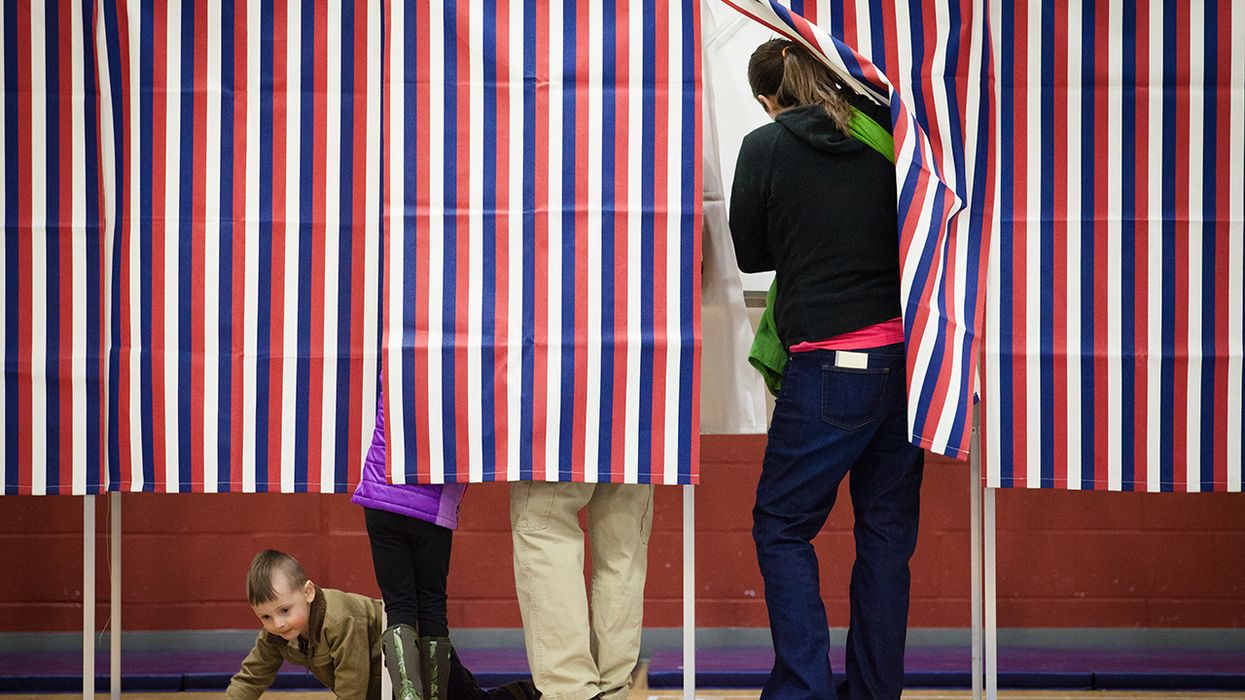
Matthew Cavanaugh/Getty Images

Will vulnerable Senate Democrats break away from their party?
The Safeguard American Voter Eligibility Act passed the House of Representatives on Wednesday with all present Republicans voting in favor of it. Only five Democrats supported the bill, with 198 Democrats voting against it.
The bill was crafted to take further steps to ensure that only U.S. citizens are able to vote in elections. The SAVE Act's sponsor, Rep. Chip Roy (R-Texas), said the bill is necessary to safeguard elections in the face of the three-years border crisis, which was triggered by President Joe Biden's administration.
The SAVE Act now goes to the Senate, where its passage is not a guarantee because of the Democrats' razor-thin majority. Senator Mike Lee (R-Utah) will be offering unanimous consent this afternoon and will be addressing the White House's opposition to the bill.
Democrats baselessly said the bill is similar to Jim Crow laws.
Unanimous consent in the Senate means an agreement on any question or matter that sets aside a rule of procedure to expedite proceedings. If any senator objects to it, the offer is blocked. Lee's office is expecting Democrats to voice opposition to it. In response, Lee is considering ways to attach the SAVE Act to the next “must pass” funding bill available.
Unlike in the House, only a few purple-state Democrats, particularly in a border state like Arizona, would be needed to defect from the expected majority of Democrats voting against the bill for it to pass the upper chamber.
The Biden administration previously explained its reasoning for opposing the SAVE Act.
"The alleged justification for this bill is based on easily disproven falsehoods. ... This bill would do nothing to safeguard our elections, but it would make it much harder for all eligible Americans to register to vote and increase the risk that eligible voters are purged from voter rolls. The evidence is clear that the current laws to prevent noncitizen voting are working as intended — it is extraordinarily rare for noncitizens to break the law by voting in federal elections," the statement said.
When the House hosted the floor debate over it, Democrats baselessly said the bill is similar to Jim Crow laws and is a "xenophobic attack" on immigrants.
Like Blaze News? Bypass the censors, sign up for our newsletters, and get stories like this direct to your inbox. Sign up here!